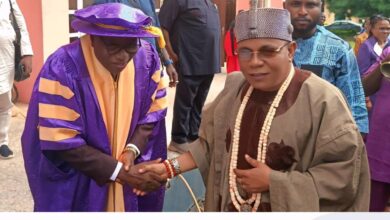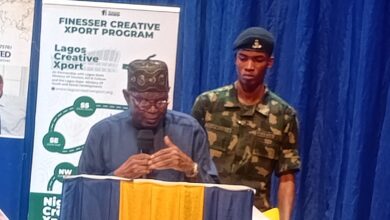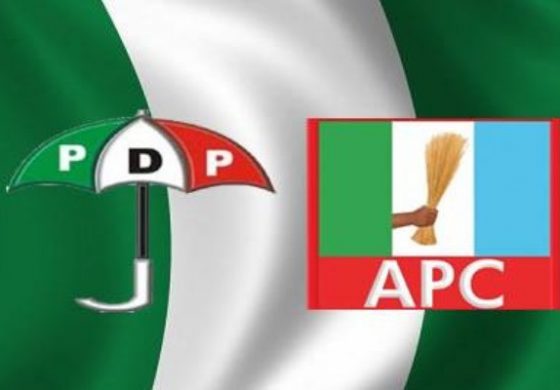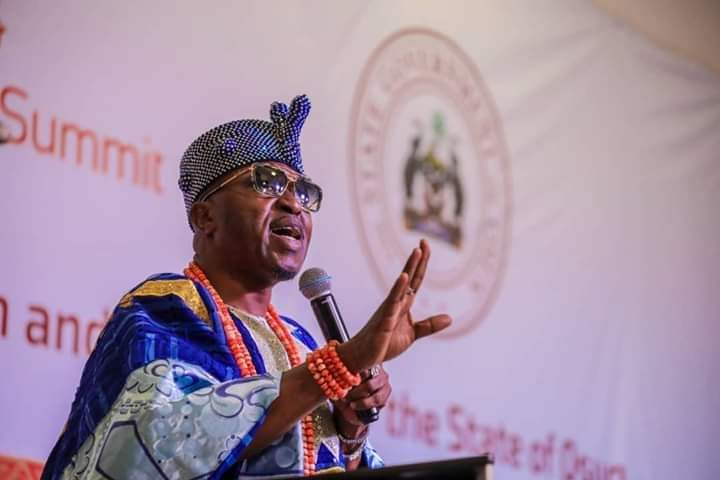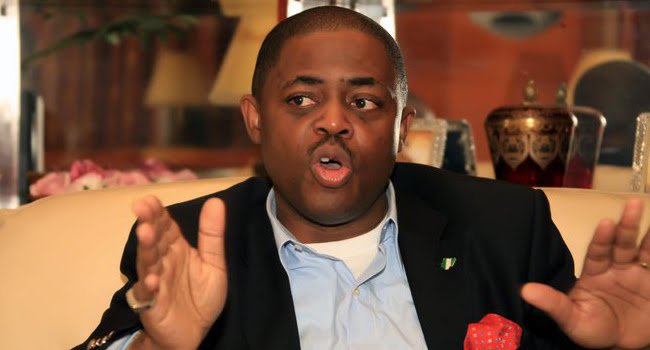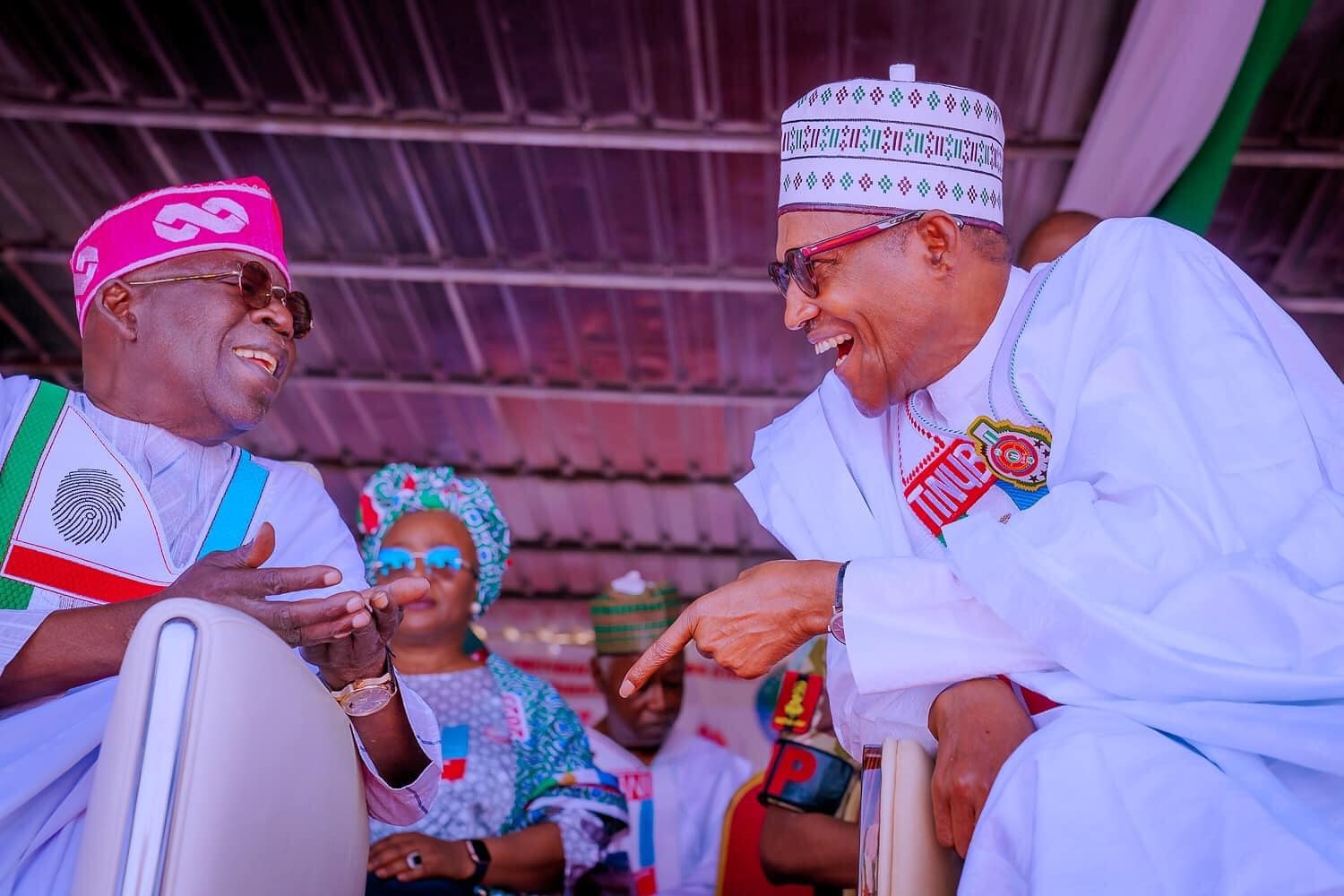INAUGURATION: Why petitions at Tribunal should be resolved before a President is sworn in – Agbakoba

*Reveals quest for Tinubu’s swearing-in before judgement reason for Interim Govt cries
*25% of votes in FCT and running mate on senatorial ballot
*Tells why Tinubu can’t be blamed for election infractions
*Bares mind on capacity of judiciary to deliver untainted justice
*Replies to Lai Mohammed’s US claim 2023 being fairest, most credible
*You can’t quarrel with Peter Obi’s complaint that elections were not properly run, Tinubu, Lai Mohammed told
By KEMI KASUMU
Former President of the Nigerian Bar Association (NBA), Mr. Olisa Agbakoba (SAN), has revealed that the reason for all the issues being raised by Federal Government and Department of State Service (DSS) about a plot by some political actors to install Interim National Government (ING) is in a bid to get President-elect Asiwaju Bola Ahmed Tinubu inaugurated Nigeria’s next President, irrespective of the decision of the Presidential Election Petitions Tribunal on the petitions before it.
He said all the petitions with the Electoral Tribunal should be resolved before a new President is sworn in, failure to do this, the legal luminary said, will generate more heated arguments in the country that, only on Tuesday, Khalifah of Jamaatu Tijaniyyah in Nigeria, His Royal Highness Alhaji Muhammadu Sanusi II, said has been more divided along ethnic and religious lines than the Civil War era.
Speaking on issue of the alleged Interim Government plot when he featured on Nigeria-based global network television, ARISE News’s The Morning Show interview monitored in Lagos by The DEFENDER on Wednesday, Agbakoba said that there is no room for it in the Constitution of the Federal Republic of Nigeria.
He stated that he was not concerned about the claims of what would be an unconstitutional government as there was no reason for it, saying, “The problem is what we call illogic cause and effect. The cause of these cries for an Interim Government and the response by Lai Mohammed and the DSS is because they want Mr. Tinubu to be inaugurated by May 29, irrespective of the decision of the Tribunal. The other guys don’t want it because they think it’s unfair. That is the real problem.
“So, I am not really concerned with call for Interim Government, which I think is unconstitutional. My concern is, I have identified the problem as if I were a medical doctor and I think that if we really resolve the petition and if the petition comes down on the 3rd of May then we have no problem because, the 29th of May is ahead. Let us say Mr. Peter Obi loses, then, Mr. Tinubu can then go on peacefully to be inaugurated. There will be no cause to say ‘you are getting inaugurated but you still have a case in the court.’
“The real issue should be, let us all put our energy to resolve the petition. If we resolve the petition, all the questions you ask about Interim Government, DSS, the slander, the issue of treason will disappear. So, my central concern is that, can we please finish these petitions in good time so that the president who takes over on May 29 will have peace of mind and no distractions to face the huge problem (of governance)?”
Agbakoba said this is because, “The next President will face a very defectively broke country of almost N80 trillion. That’s going to be a huge obstacle and then if you put the wahala of ‘is his presidency legitimate?’ That will make things very unstable for him.
“Let me go back again and repeat, can we please get these petitions away so that whoever is the President can focus on giving us a brilliant and good and developed Nigeria? I have read all the Agenda. Peter Obi’s Agenda is brilliant. Mr. Tinubu’s Agenda is brilliant. Whether they can be implemented is a different thing. But I don’t want them to come with the problem of uncertainty around Nigeria; Interim Government and all that,” he said querying why it has to take Nigeria 360 days to determine a simple election petition that Kenya, with a set rule of ‘there will be no swearing in of president unless all elections petitions are resolved’, finishes in 14 days.
Insistently, he said, “That can be resolved and that is the reason I have so strongly enphasised, let us try and get these petitions away from the equation. Kenya can do theirs in 14 days, why do we need 360 days to do ours? Can you think of that? Is that not ridiculous? You can say Kenya is a small country, they don’t have the mass of materials that we have, but let’s try! What scares my soul is that we just sit down helplessly doing nothing.
“Let’s give it our best shot. It may fail, we know we have done our best, but just to sit down and no one is saying anything, the courts are saying nothing, the legal advisers are saying nothing and we are all here moaning and, everyday, we hear something new: Interim Government, treason, NO! Let’s give it a shot. That’s my point.”
The former NBA president said that the policy that gives electoral candidates 180 days to file a petition was too long, saying that the fact that the constitution prescribes a time limit does not mean that time limit must actually run. He then gave his opinion saying that electoral petitions tribunal can be heard in seven days.
Agbakoba, in a statement he personally signed earlier on Monday, had urged the Tribunal to adopt the procedure used for speedy conclusion of administration matters in its approach to the cases.
According to him, the first is the interpretation of Section 134 of the 1999 Constitution of the Federal Republic of Nigeria as to whether security 25 percent of votes in the Federal Capital Territory, Abuja is compulsory to be President. On the second the legal luminary queried the legality of a candidate being allowed to stand for presidential or vice presidential election when he is at the same time a senatorial candidate.
How to resolve petitions in seven days
Joining ARISE News’ The Morning Show on Wednesday, Agbakoba made his case clear when he reiterated his position on the need to resolve all the petitions before the Tribunal before a new President of Nigeria can be sworn in, adding in his opinion that they can be resolved in seven days.
Taken on by Journalism giant, Dr. Reuben Abati, along colleagues when asked how feasible his opinion of seven days could be considering the fact that election petitions have time limitation as the Constitution talks about 180 for filing and 60 days for appeal and dealing with election of over 10,000 polling units, he explained.
“So, I start by saying that the judicial philosophy of Nigeria is about 100 years old. Nigeria is not known for speed. Why is it possible that Ghana finishes its own election petition in 30 days? So, why can’t we also do it here? Why should we have 360 days to do something that is very simple? So, the new international goal standard, and I see it as a Senior Arbitrator in the City of London, and what we do is we apply case management.
“My first recommendation is to say, the issues presented to the Tribunal, are they amenable to quick resolution? And I think they are three issues which you have outlined that are amenable to quick resolution in one way or the other.
“Now, under the Kenyan procedure, those questions that I have set out are decided in exactly one day. So if I was the presiding judge at the tribunal, I will give two hours to the petitioner to establish the case whether the 25 percent of FCT is relevant in consideration of who is the President or not. I will give time to Mr. Tinubu people to reply and I will deliver a ruling at 6pm. What’s the difficulty? These are purely matters of law. So, it is absolutely feasible.”
Continuing he said, “If those three questions do not succeed, then the Part A of be now to do what you said, take the issue of electoral malpractice, which I consider to be a little longer. But I have a strong feeling that those three questions that I have set out can resolve the petitions one way or the other and it can be done in seven days. If Kenya can do it in 14 days, why do we need 360 days to do our own? Are we not more highly judicially educated than Kenya?
“Also, without criticizing the lawyers in the petitions, I haven’t heard anything from them but there are all sorts of procedures by which we can front-low a case, push it, set out procedural issues, set out judicial issues for the Tribunal to determine. That is number one. Two, the Tribunal itself can of its own motion raise questions and say we have read all these petitions and we think we can dispose of these petitions, if we set out some questions that, if taken, can resolve the entire things.”
Reason for demanding speedy approach
Giving reason for his demand for speedy approach he said, “I am concerned that the polity is overheated. The way to go is to see if we can get the petitions resolved before May 29. The elections were in February, that’s about four months. What’s the difficult thing about resolving these cases well before the handover?
“Kenya has a procedure whereby they lay out a policy, ‘there shall be no inauguration until the petitions are completed’. And in Uwais Panel, of which I was a member, we set out that procedure. There is a certain unfairness for a petitioner to challenge a president-elect who goes on to get inaugurated. That’s what is causing all the problems.
“So, let’s give it a go, let the judiciary give it a go, let the lawyers in the Tribunal give it a go and see whether we cannot accomplish what I described in my letter. So, that is the basis of my letter,” he said ruling out the issue of limitation premised on 180 days as, according to the legal icon, there is nothing that says it must be 180 but that it can go in on the first day, he reiterated.
25% of votes in FCT and running mate on senatorial ballot
On challenges in making his proposal a reality he said, “The point is that, in modern judicial case management philosophy, there are steps you take to arrive at a conclusion. Your step one will mean that if the decision of the Tribunal states that 25 percent of FCT is not required, that point fails. If the Tribunal states that 25 percent of FCT is required, then the petition succeeds.
“Now, as you go up the steps you would come to a point where the most difficult question will be posed, which his electoral irregularities. Mr. Robert Clarke was on your programme yesterday (Tuesday) and he gave a description of how petitions work. Petitions work on two levels. The first one is the technical level, all the three points I laid down, they are jurisdictional, they don’t need any facts, they don’t need a single documentation from INEC because on your facts, Mr. Tinubu did not win 25 percent in Abuja, so you don’t need any access from INEC. It’s stated in the petition.
“So, the question is a legal question. What is the consequence of Mr. Tinubu not getting 25 percent in Abuja? Fatal or not fatal? You don’t need any recourse to INEC for any documentation. If the question is answered in the negative, Tinubu goes through. If the answer is positive, Tinubu loses.
“Go to the next question. What is the consequence of Mr. Tinubu’s vice presidential candidate being on the ballot of senatorial? Is it fatal in view of Section 35 of the Constitution? One way or the other and so on and so forth and you exhaust the jurisdictional and procedural questions. If all those questions succeed, then you are within the time to dismiss the petition or allow it.
“Now the more difficult one is, if the procedural and jurisdictional points do not succeed, then we are bunked down by the electoral irregularities and I agree here that access to documentation will be necessary. But to sit down and do nothing, I haven’t heard a thing from the court, I haven’t heard a thing from the legal team, it’s the point that I am saying is irritating and the polity is overheated.”
Lai Mohammed and capacity of judiciary to deliver untainted justice
Reacting to Lai Mohammed’s treason scream in the United States, he said, “The other day Mr. Lai Mohammed was in the US chanting treason, Mr. Peter Obi is here making his own woe, but we can resolve all these and have peace if the petition is decided one way or the other on technical point. If it fails, and I take the point that it is possible that it fails, then we go to step two which is evidential hearing.”
On his doubt about the capacity of the Nigerian judiciary to deliver untainted justice with reference to the Ahmad Lawan case where the lawyers waited till the last day to file their petitions, Agbakoba was asked about capacity and integrity of the judiciary and he said the court does not need 20 days to decide on a case in which it is required to decide why Tinubu should not be President on the basis that he did not win 25 percent in FCT.
“You don’t need 20 days to do that. It is a legal question whether ‘AND’ in Section 134 is contiguous or not. It’s very simple. A bench warrant can be done on that. I had done big arbitrations in the City of London and decided a point in three hours. You see, the problem is our judicial philosophy. I just look into the Kenya one, it tells here, ‘Sustaining judiciary transformation’.
“How can this country, the so-called giant of Africa, run a judicial system that is a hundred years old? That is the problem. The NJC is not doing anything to create a new (judicial system).”
On his letter to INEC to give its interpretation of the now more talked-about Section 134 with Sub-Section especially, he said, “I did a letter to INEC. If they had answered me, maybe we wouldn’t have been in this logjab. They didn’t reply by the way. The closest they came to reply was my interview I did my good friend on TVC,Festus Okoye and he admitted that it was an issue that requires to be resolved. I was surprised that they did nothing.”
He said, “My own view is that Section 134 applied literally because the rules of interpretation says, ‘If you read something and is so clear to you, then you don’t need to interpret it’. The thing said you need to win a quarter of the votes in two-third 36 states AND (FCT) and the answer is obvious,” he said.
Asked to break it down to the layman understanding he said, “I have just broken it down. Reuben, I have broken it down. You want to put words in my mouth, which I won’t accept. It is so simple. You get a quarter of the votes in two-third of 36 states. That is what the law says, which is 24. So, that is one part of it.
“It goes on to say ‘AND’. What does that mean? ‘AND’ the FCT. So, as far as I am concerned you must also 25 percent in the FCT but that is not for me to say because I have been judging what is before the Tribunal. We think the Tribunal can answer this question quite easily in one hour. That’s my point. It is not a difficult question to resolve,” he said.
Understanding Peter Obi, Datti’s concerns
“The problem is because there is a strong feeling that Mr. Tinubu will be sworn in and then the petitions are running and there is that feeling that ‘but the man is sworn in now, what are we still doing in court?’ That’s the problem and that is why I said let’s get these petitions resolved.
“I don’t agree with Mr. Lai Mohammed that what Mr. Peter Obi is saying is treason. I don’t agree. But if you go below what the problem is, it’s to do with the fact that Mr. Tinubu is likely to be sworn in on 29th of May 2023 while the petitions are not even heard. So, why don’t we try even if we fail? Supposed my theory of seven days doesn’t work, but let us try now to see if we can get things going and if we can get things going, that is a plus for everybody. Why must we be in this continuous political quagmire of everywhere is in confusion?
“But clearly I have said that I do not believe and that the Constitution does not recognise anything like an Interim Government. As we stand now, Mr. Bola Tinubu is the President-elect of Nigeria and he is going to be sworn in on the 29th of May 2023 whether we like it or not. Many guys are going to be unhappy because they will say we have petitions. So, in order to balance out justice, could we please get these petition, if it can be resolved before that date so everyone is happen. If Peter Obi loses this thing, he goes home and says he lost. But why hang the thing.
“I can understand Peter Obi’s concern and Datti Baba-Ahmed’s outburst. If Tinubu is being sworn in at Eagle Square and the petition is hanging in the Court of Appeal, that doesn’t sound too right to me. So, where we strike the balance is to give our best possible shot to finish the petitions. Nobody should sit down and say, ‘can it be done?’ Let’s try to see if it can be done.”
On whether he thinks Tinubu, who will be sworn in as next President, fits his picture of an ideal President of Nigeria, he said, “I hope. Personally what I think, I am apolitical. So whoever gets in there, I am interested in Nigeria turning around. So, I would hope that if Mr. Tinubu gets in and he’s done with all the petitions, or Mr. Peter Obi, or whoever, I don’t know. You know the point? I am not sure that Nigerians really who is the President. Nigerians are interest in what Fayose famously described as stomach democracy or OBJ described as dividends of democracy.
“So, I would urge whoever finally gets to be confirmed as President to do what is right by Nigerians. And if Mr. Tinubu can do so, welcome. If it’s Peter Obi, Nigerians are just tired. They are not interested in who is there particularly. They are interested in how development can come, how the healthcare system can be turned around, how you can create jobs, how can you push back on the economy, how can increase the debt-to-revenue profile, how you can make Nigeria a country where we feel rest and we don’t have people running away.
“Nigeria has the potential to be a great country but we need leadership. So, if Tinubu can bring it, fine. If Mr. Peter Obi can bring it, fine. I have no political preferences. My only concern is that Nigeria ought to be a great country and I think it can be a great country. We are losing the ability to be a great country. That is the problem.”
Replies Lai Mohammed on 2023 elections as fairest, most credible
Asked to react to Lai Mohammed’s declaration to his Washington D.C. audience on 2023 elections as fairest, most credible, Agbakoba, who was careful to be heard speaking live and people are listening to him while there is an active petition being a lawyer and former President of the NBA, said:
“Let’s allow the petition deciders, the Election Petition Tribunal resolve some of these issues. Yes, we can express opinions but I would rather prefer that the judicial process be the ultimate decider so that we don’t go prejudicing and speaking out of point.
“But having said this, I think that neither Mr. Tinubu nor Lai Mohammed can really quarrel with Peter Obi’s complaint that the elections were not properly run. And, in fairness to Mr. Tinubu, he didn’t conduct the election, so I don’t hold anything against him. Mr. Tinubu did not do anything wrong in becoming the President-elect because the election was done by a supposedly neutral third party. So, I am not sure that Mr. Tinubu or Mr. Lai Mohammed need to get into the fray because they didn’t conduct the election. They are the election body. Peter Obi’s accusation or complaint goes to INEC.
“But if you were to ask for my view, and I have been in election petitions for a long time, this is one of the worst election … ever conducted. I said this for a number of reasons. If you listen to the Chairman of the electoral management body, the INEC, he made clear to us ad nauseam ‘BVAS is the magic’ and it turns out that BVAS isn’t the magic.
“And I have the unfortunate displeasure of actually checking what exactly is BVAS in the law and I was shocked that actually BVAS is not what we thought was represented to us by the National Assembly in the enactment of Electoral Act 2023. To summarise, BVAS is no more than a tool to accredit voters. But I suspect, without saying that is the way to go, that BVAS is not going to be as important in the petitions as we think because, the Osun Court of Appeal decision did not accept the argument by the appellant that the BVAS is the magic vote that determines over voting. The court wanted to see a link to the original old ballot papers.
“In order what? The Presidential polling units become important and I was taken aback by that. So, when I studied it, I found out that actually INEC has the legal authority to present results either through the normal paper way and the BVAS. So, there is no real change.
“So I hope that in the next amendment, which will should really be very clear, what exactly is electronic voting, number one. What is the consequence for not following electronic voting. The only consequence now is a criminal charge of N500,000. So, there is still a lot to go in stating how we can get to the goal standard in our electoral process.


